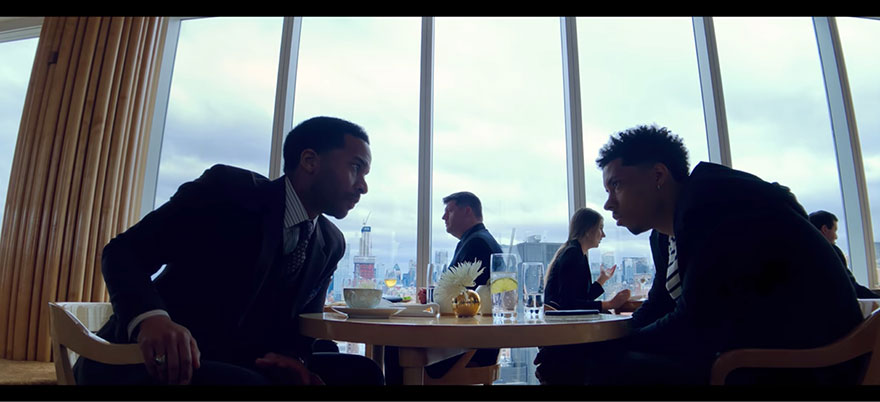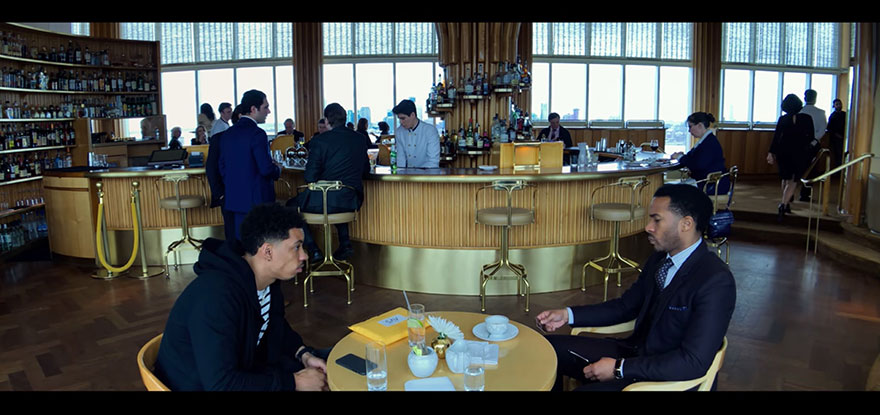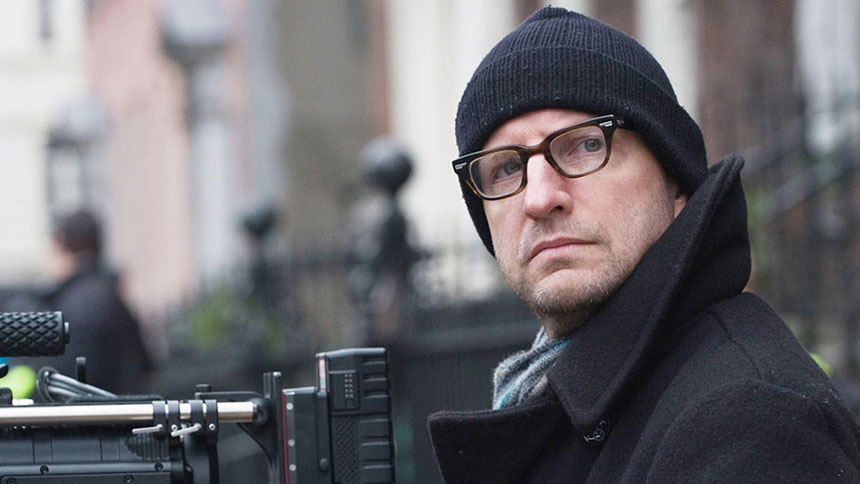Video

Understanding Steven Soderbergh. Part 1.
Today I’d like to share a bit about Steven Soderbergh’s professional life, and why have I’ve been following him for years. On two upcoming posts I’ll share everything I know about his working methods, including his shooting schedule and preferred workflow and gear. Cool? Let’s go!
Thirty years ago Steven Soderbergh became the pioneer of independent cinema with his first movie Sex, Lies and Videotape. Today he leads the future of filmmaking and might be even shaping the future of the NBA.

Last week, Steven Soderbergh’s latest film “High Flying Bird” launched globally on Netflix. I waited for weeks to watch it and… let’s say it wasn’t exactly what I was expecting.
To be fair, I don’t follow professional sports, and the film is about an NBA agent and a rising basketball star who try to change the business of professional basketball. With only 72 hours to pull off a daring plan, they try to outmaneuver the other players with a strategy that could change the game forever. The outcome raises questions of who owns , and who should own, the game.
Interestingly, the characters in “High Flying Bird” imagine what could happen if pro players took their careers into their own hands using the power of the internet. Well, that is EXACTLY what Steven Soderbergh has been doing with the Hollywood studio system for a very long time.
For example, back in 2005 (before anyone thought is was possible) Soderbergh released Bubble simultaneously in theaters and as a home release. In 2009 he tried the same approach with The Girlfriend Experience with adult film star Sasha Grey.
In 2017 with Logan Lucky, Soderbergh
“crafted a project that bypassed traditional Hollywood production and marketing formulas, targeted his advertising to find the right audience, edited trailers himself, and ignored the usual branding paradigms.”
The Atlantic
Who is Steven Soderbergh?
He is the guy who once directed Out of Sight, The Limey, Erin Brockovich, Traffic, and Ocean’s Eleven, all within a three-year period.
Many people forget (or don’t know) that in 2000, Soderbergh received two Oscar nominations for Best Picture, and won Best Director for Traffic.

As of right this second, Soderbergh has 42 credits as director, 49 as producer, 28 as cinematographer and 23 as editor. He has 28 features and over 30 hours of TV series. His directorial work alone have grossed over US$2.2 billion worldwide.
“Soderbergh has worked in every genre and at all levels of the studio system. He directed glossy franchise entertainment (Ocean’s Eleven), Oscar-winning successes (Traffic and Erin Brockovich), hard-boiled noirs (Out of Sight and The Limey), and low-budget experiments (Full Frontal, Schizopolis, and The Girlfriend Experience).”
The Atlantic
In other words, Steven Soderbergh is not a human from planet earth.
Steven Soderbergh’s Oscars Acceptance Speech.
“There are a lot of people to thank. Rather than thank some of them publicly, I think I’ll thank all of them privately. What I want to say is — I want to thank anyone who spends part of their day creating. I don’t care if it’s a book, a film, a painting, a dance, a piece of theater, a piece of music… Anybody who spends part of their day sharing their experience with us. I think this world would be unlivable without art, and I thank you. That includes the Academy. That includes my fellow nominees here tonight. Thank you for inspiring me. Thank you for this.”
Steven Soderbergh
That’s a powerful message. So powerful that the Academy Awards recently held it as “the ideal of an Oscar speech” probably because it is short and to the point.
The real-life story behind the speech is fascinating:
“I had nothing prepared because I knew I wasn’t going to win. I figured Ridley Scott, Ang Lee, or Stephen Daldry would win. So I was hitting the bar pretty hard, having a great night, feeling super relaxed because I didn’t have to get up there.”
Steven Soderbergh
So the combination of lots of alcohol and lack of preparation worked well that night. Going back to Soderbergh’s professional life,
On Marketing Logan Lucky.
“Logan Lucky was released on August because historically, it has been a good time to release something of quality. There’s typically a dead zone before Labor Day. The big summer movies have played out, and there are three weeks with some breathing room. You just need a lot of marketing money, more than we had. I was aware it might not work. I learned a lot, and it was absolutely a worthwhile thing to do, to try and create an avenue for projects that don’t fall in any of these tiers or to want to have creative control over everything, with more financial transparency.”
Steven Soderbergh
On my next two post the plan is to share everything I know on Soderbergh’s production schedule, his approach to scriptwriting, and why he prefers working with skeleton crews.